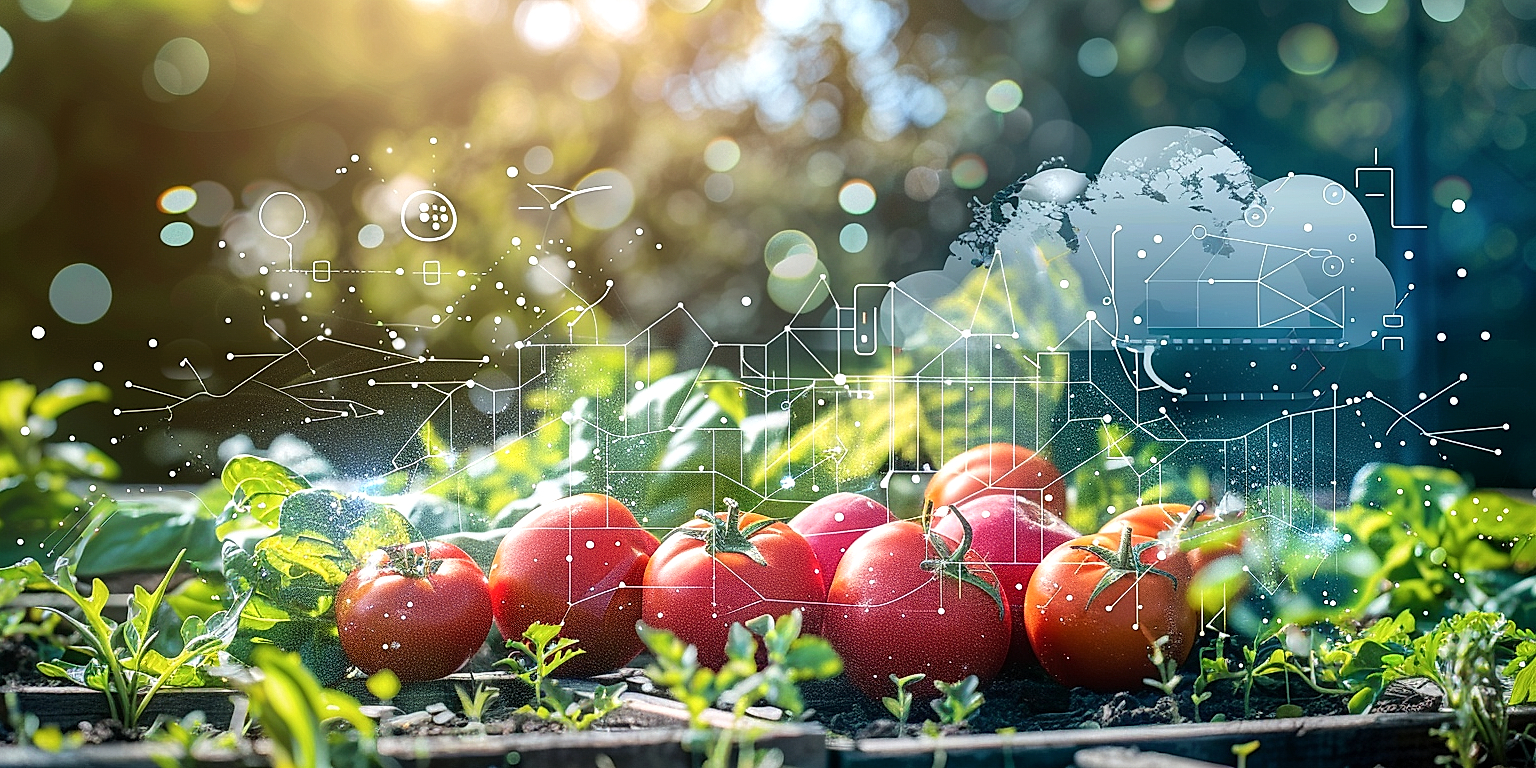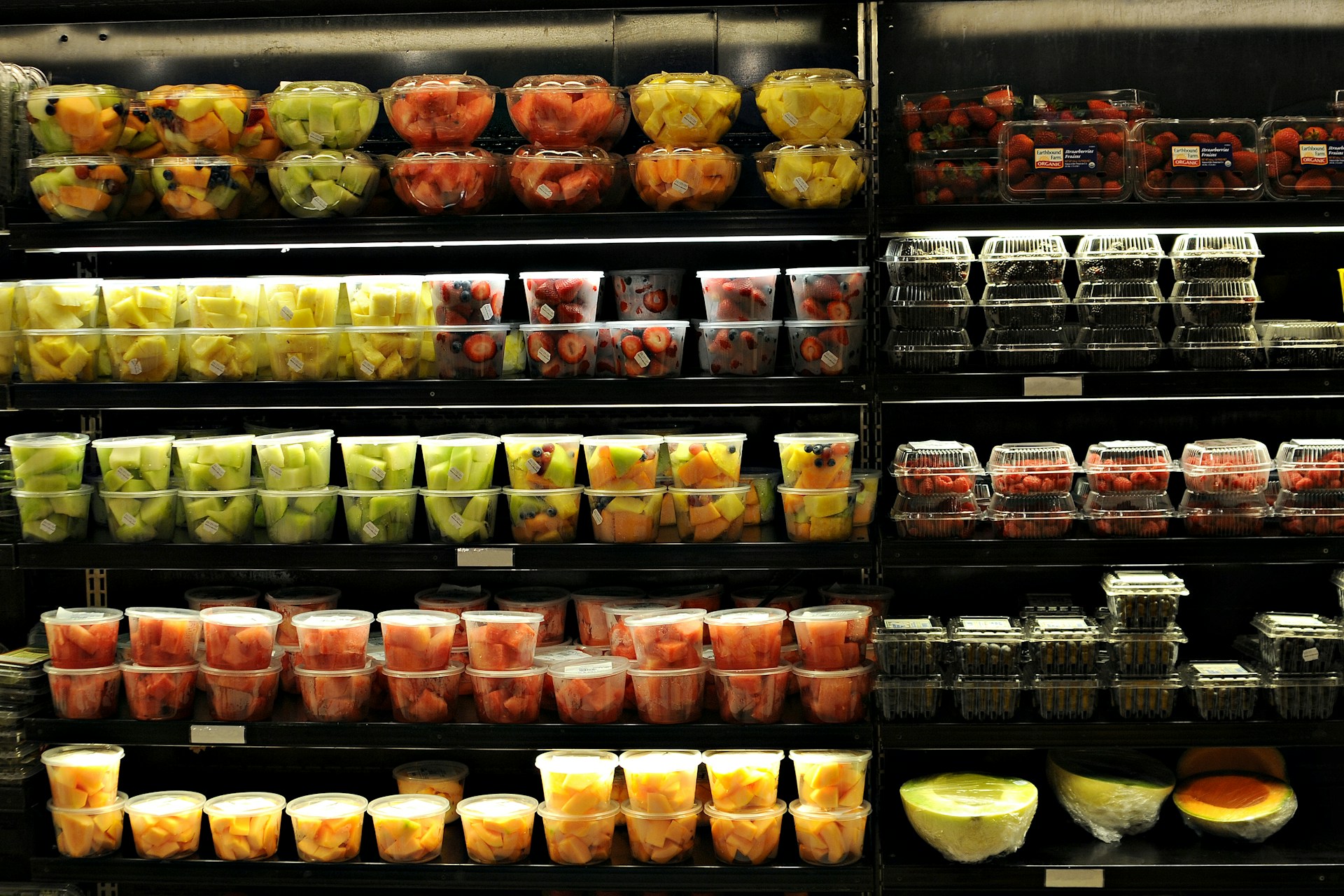In today’s fast-paced business environment, where stringent regulations often characterize the produce retail sector, leveraging the power of technology is crucial.
It has become an integral part of achieving and maintaining compliance with the complex web of rules and standards governing this industry.
From AI-based software to tracking systems, technology is fundamentally altering the compliance terrain.
However, simply integrating technology is not enough.
Understanding its multiple dimensions and the value it brings is key to staying ahead.
In this context, this blog aims to shed light on the various technological innovations that streamline compliance in the produce retail sector.
Contents
Technologies Streamlining Compliance In Produce Retail
1. Blockchain for traceability and transparency
In the realm of produce retail, the adoption of sophisticated technologies such as Blockchain, are significantly streamlining the compliance processes.
Specifically, Blockchain has emerged as a game-changer in ensuring traceability and transparency within this sector.
Blockchain is essentially a decentralized ledger technology that ensures secure and transparent transactions, a feature that makes it ideal for traceability in the produce retail industry.
Through its application in this industry, retailers can accurately ensure the origin of products.
Blockchain technology leverages its immutability attribute to offer end-to-end traceability, enabling retailers to verify the safety and authenticity of products, effectively streamlining compliance.
The capability of Blockchain in providing a single, indisputable version of truth helps in removing various ambiguities related to product origin, handling, and shipping details.
This means that every participant in the supply chain – from the growers to the retailers – can track and verify the product, thus fostering a culture of accountability and transparency amongst all stakeholders.
The application of Blockchain thus elevates traceability to unprecedented levels.
Furthermore, transparency enabled by Blockchain can mitigate potential issues related to fraud, a common challenge in the produce retail industry.
Through advanced encryption mechanisms, Blockchain ensures that every single activity within the supply chain is recorded and visible, drastically reducing fraudulent activities by providing a transparent supply chain path.
In the context of rules and regulations, Blockchain’s immutable nature, is its unique selling point.
Laws and regulations in the food industry often change and can differ significantly from one jurisdiction to another, making compliance complex. However, with every transaction recorded and unchangeable on a Blockchain, companies can demonstrate their compliance with regulatory requirements with absolute certainty.
During instances where discrepancies or non-conformance is reported, Blockchain’s extensive traceability functions facilitate in identifying and isolating the potential cause.
This not only minimizes losses but also ensures immediate corrective action without affecting the entire chain of activities, thus effectively mitigating risks.
Considering these aspects, it becomes apparent that Blockchain technology is playing an instrumental role in streamlining compliance within the realm of produce retail.
By introducing unprecedented levels of traceability and transparency, Blockchain is making it possible for all stakeholders to ensure the integrity of their products, thereby fostering relationships built on trust and mutual accountability.
2. AI-powered predictive analytics.
The integration of artificial intelligence (AI) with predictive analytics represents an innovative approach in compliance management within the produce retail industry.
AI-powered predictive analytics offers immense potential for improving compliance and overall operational efficiency by providing accurate, real-time insights.
Using advanced machine learning algorithms, AI can process and analyze vast amounts of data, discerning patterns and trends that are not immediately discernible to human operators.
This ability to handle and make sense of large data sets is particularly beneficial to produce retailers dealing with intricate supply chains and diverse product assortments.
The generated insights help identify potential compliance risks and bottlenecks before they pose significant challenges.
Predictive analytics tools powered by AI can effectively anticipate demand trends or identify potential compliance issues, thus contributing significantly to the streamlining of operations.
Furthermore, AI-based analytics can reduce the occurrence of human errors often associated with manual compliance checks, thereby improving the accuracy and reliability of compliance procedures.
Predictive analytics, when implemented appropriately, also supports strategic decision-making through its proactive rather than reactive approach to compliance management.
The use of AI-powered predictive analytics is a dynamic and ever-evolving technology, and its application to produce retail compliance is proving to be transformative.
For instance, predictive analytics combined with AI can model entire organizational systems, taking into account a variety of factors that influence compliance such as regulatory requirements, market dynamics, customer preferences, and various risk factors.
These advanced modeling capabilities of AI-powered predictive analytics enable produce retailers to maintain compliance in an increasingly complex and rapidly evolving regulatory environment.
Moreover, AI-powered analytics aids in the detection of fraudulent activities, which is crucial for maintaining regulatory compliance and ensuring legitimacy.
The ability of AI to detect anomalies and outliers in data patterns significantly enhances the fraud detection capabilities of the produce retail ecosystem.
Despite the clear benefits of AI-based predictive analytics, its application in compliance management must be done carefully, taking into account appropriate data protection and privacy regulations.
However, with a carefully planned and executed integration of AI technology, produce retail entities can confidently look forward to a future of streamlined compliance workflows driven by the power of AI.
3. IoT for Real-Time Inventory Management
The Internet of Things (IoT) serves as a game-changer in the realm of inventory management within produce retail.
With IoT, retailers are presented with the tantalizing prospect of achieving real-time inventory management.
At the core of this, IoT devices such as smart tags and sensors are used to track fresh produce along its journey from the farm to the retail shelf.
This translates to a reduction in waste, improved product availability, as well as cost savings which is an impactful advantage in the competitive industry of produce retail.
Moreover, IoT devices can monitor real-time conditions, including temperature and humidity, which directly influence the quality of fresh produce.
This constant monitoring ensures optimal conditions are maintained, preventing spoilages and preserving product quality and freshness.
Interestingly, the use of IoT doesn’t stop at just the management of inventory, it extends into streamlining compliance procedures.
Traditional methods for managing compliance in the produce retail sector are often times inefficient and prone to human error. IoT addresses these issues head-on.
IoT technologies enable automatic recording and tracking of critical compliance information such as the source of the produce and exact time duration for which the produce was in transit.
An additional advantage lies in the ability of IoT devices to generate a real-time audit trail, thus significantly enhancing transparency.
Such transparent practices are not just good for business reputation but also greatly simplify compliance procedures and inspections.
Furthermore, the real-time data provided by IoT can be leveraged to conduct predictive analytics, thus driving strategic business decisions.
Efficient inventory management powered by IoT translates into better store layouts and improved distribution of produce.
Undoubtedly, IoT has immense potential in the produce retail sector, promising to revolutionize and streamline processes.
Not only does it improve the efficiency and accuracy of inventory management, but it also significantly eases compliance in the produce retail sector.
As a result, IoT is the much-needed catalyst to drive innovation in the produce retail industry.
4. Automation in Quality Control Checks
Quality control (QC) is a critical aspect in produce retail, ensuring that all items sold meet certain quality standards.
Automation has begun to play a pivotal role in QC, streamlining compliance and boosting overall efficiency.
Automation enables consistent quality checks, as machines perform the same tasks flawlessly time after time without fatigue or error.
Automated systems can check produce for a variety of quality determinants such as size, ripeness, color, and potential defects.
Automation in quality control checks enables consistent, efficient, and accurate assessments of produce, ensuring compliance with quality standards.
This eliminates the subjective judgment that can occur when quality checks are conducted by humans, leading to greater consistency in compliance measures.
It also reduces the time and resources required for manual checks, increasing the speed of processing and overall productivity.
Machines equipped with AI and machine learning algorithms can learn and adapt over time, improving the effectiveness of quality control checks.
Furthermore, through automation, data on quality measures can be collected and analyzed quickly, providing valuable insights for decision-making and process improvement.
Automated quality control checks also add a layer of objectivity to the quality assessment process in produce retail, making the process more transparent and reliable.
All these benefits contribute to streamlining compliance in produce retail, as quality standards can be consistently enforced, and any deviations can be quickly detected and corrected.
In addition, automated quality checks can be customized to fit various regulations and requirements, improving flexibility and adaptability to changes in standards and legislation.
Automation, therefore, not only streamlines compliance but also enhances the customer experience, as consumers can trust that the produce they are buying has been thoroughly and objectively checked for quality.
It’s clear that automation in quality control checks is poised to reshape compliance in produce retail, optimizing processes and outcomes for all stakeholders.
As a result, more and more retailers are recognizing the value of automation in their quality control processes and investing in this technology as a key strategy for realizing improved compliance and customer satisfaction.
5. Cloud-based Compliance Management Systems
The uprising of cloud technology has generated a new and efficient way for businesses to manage their daily operations.
Among these operations, compliance management has greatly benefitted from the application of cloud computing.
In the context of produce retail, several regulatory compliance matters need to be addressed, and these could become cumbersome with traditional methods.
The use of cloud-based compliance management systems has profoundly simplified the process while being cost-effective.
These sophisticated systems automatically monitor and manage critical compliance issues within the organization.
Leveraging cloud technology to streamline compliance requirements can lead to enhanced accuracy in record-keeping and reduce the possibility of errors.
The cloud-based compliance management system ensures a smooth process and mitigates the risk of non-compliance by continuity maintenance of the compliance process.
These systems provide a single unified platform where all the compliance-related documents and data can be centrally stored and easily accessed.
It supports multiple users, offering them access to updated documents anytime, from anywhere, significantly improving efficiency and productivity.
Moreover, the application of cloud-based compliance management has a great deal of scalability and flexibility to offer.
As your business grows and your compliance needs increase, a cloud-based compliance management system can be easily expanded to accommodate the growing needs.
Also, in the face of new regulations or changes to existing ones, these systems can be updated swiftly, and without any significant business disruptions.
Overall, the adoption and implementation of cloud-based compliance management systems can play a key role in streamlining compliance within the produce retail sector.
By harnessing the power of the cloud technology, businesses can simplify and automate their compliance processes, making them more manageable and less time-consuming.
This, in turn, can enable businesses to focus on other critical aspects of their operations, further supporting operational efficiency and advancement.
The success of cloud-based compliance management system in the produce retail industry serves as an encouragement for other businesses to explore the benefits that cloud technology has to offer when it comes to compliance management.
The Bottom Line
The future of supply chain management is rooted in cutting-edge technology.
Blockchain technology will drastically improve traceability and transparency, bringing a new level of trust into industry processes.
Leveraging AI-powered predictive analytics can take data analysis to the next level, enabling proactive decision-making and strategic planning.
IoT applications will revolutionize inventory management, providing real-time insights that pave way for optimal resource utilization.
Moreover, automation will make quality control checks more accurate and efficient, eliminating human error.
Lastly, cloud-based compliance management systems will streamline regulatory adherence, ensuring businesses meet all requirements seamlessly.
Therefore, embracing these technological advancements will be key for businesses to enhance efficiency, accuracy and competitiveness in the dynamic world of supply chain management.




